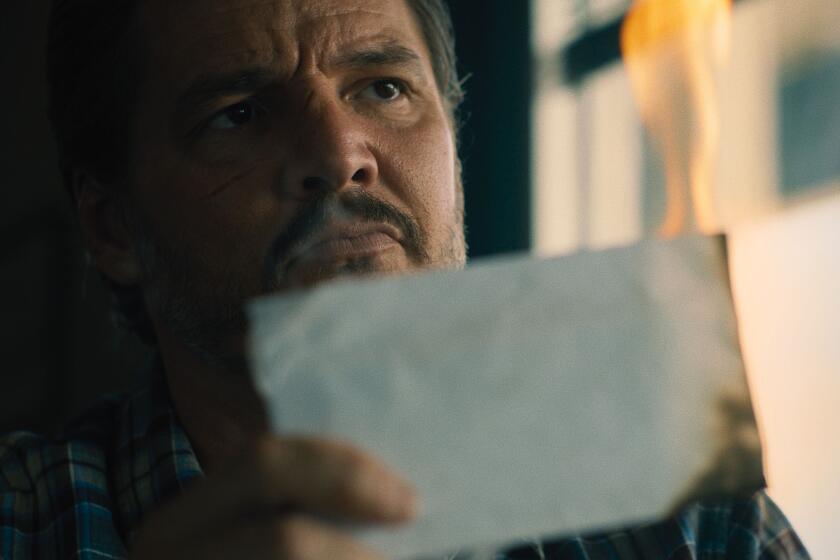‘Bird’: A View of the Darkest Auras--Just Beyond Midnight
- Share via
Some films have auras. It’s not that you can detect a blue-green luminosity surrounding them, the kind of halo that clairvoyants say they can see around people. But certain films somehow declare that a particular, devout intensity went into their making.
The overworked but accurate phrase is that they are seen to be labors of love. The usual drives toward the widest possible audiences and the largest profitability are tempered. You have the feeling that the film has been conceived, more than most, as an end in itself, its aims uncompromised.
There are never many aura films and the biting irony is that sometimes they work and sometimes they don’t. “Fiddler on the Roof” was unmistakably an aura film, an homage to an embattled Jewish heritage and a celebration of triumph over the forces of suppression. You might even quarrel with its resolute cheerfulness, but you could not doubt that it was an all-hands work of devotion.
Clint Eastwood’s “Bird” is the most recent aura film and another homage, this time to one very special musician, Charlie Parker. The aura is very dark; seldom has a film been so relentlessly underlit. It is like being in the farthest corner of a cheap nightclub, undoubtedly the effect Eastwood had in mind as a continual reinforcement of the nature of Parker’s world.
Eastwood’s profound admiration for Parker’s revolutionary musical genius is totally clear, and so is his compassion for Parker’s brief and hopelessly untidy life. An ambulance attendant, phoning his office in the film’s last sequence, describes Parker as a man in his 60s. “He was 34,” Parker’s friend says, as if to herself. It is a quiet, sad and powerful moment.
In its length--the better part of three hours--in its largely unrelieved darkness and its unrelenting record of Parker’s lost battles with booze and drugs, “Bird” is nothing if not uncompromising. It’s hard not to see and feel the devotion; and there is the music itself, a torrent of it, to let you hear what all the devotion is about.
So why does “Bird” seem less than the sum of those devotions? In considerable part, I think, it is because producer-director Eastwood and the writer, Joel Oliansky, have opted to play show but not tell.
Forest Whitaker’s impersonation of Parker is wonderful--the physical resemblance is eerily exact--yet there are surprisingly few glimpses of the inner man.
The film is descriptive rather than interpretive, and for me, at least, there were left hanging a number of unanswered questions. The largest of these was just what was it that made Parker a musical revolutionary? He surely was, but the movie audience has to take it on faith.
With Thelonious Monk and a small handful of other musicians, Parker took jazz out of the comfortable patterns of its past. The disgust (mixed with fear) that traditional musicians felt is indicated in “Bird” (a cymbal flies through the air in contemptuous slow motion). But you’d have thought that even a wide audience could have been shown why Parker’s chords and melodic lines were so far out.
Given the otherwise uncompromised attention to the man and his life, the failure to go inside the music seems a curious and disappointing hesitation.
Bertrand Tavernier’s “ ‘Round Midnight,” with which “Bird” has to be compared on several grounds, was another aura film, a labor of love by a lifelong fan of American jazz. The music as music was revealing but in a sense disappointing. Dexter Gordon, who starred in the film, was ill and past his prime. And yet, when he says, “I’m tired of everything but the music,” he seems to be summing up a life and an attitude in a way that eludes “Bird.”
And Gordon’s music, painfully tentative, especially in the early moments of “ ‘Round Midnight,” still had the feeling of a man in search of something new, probing for an unfamiliar phrase, the unanticipated note. Weary and short of breath, Gordon was nonetheless the musical explorer impatient with the patterns of the past.
That search for something else, a line, a chord, a note out there just beyond experience, drove Parker as it has driven the ailing Gordon, and no doubt had something to do with the addictions. You saw it--and felt it--in “ ‘Round Midnight.” You only saw it in “Bird.”
More to Read
Only good movies
Get the Indie Focus newsletter, Mark Olsen's weekly guide to the world of cinema.
You may occasionally receive promotional content from the Los Angeles Times.










